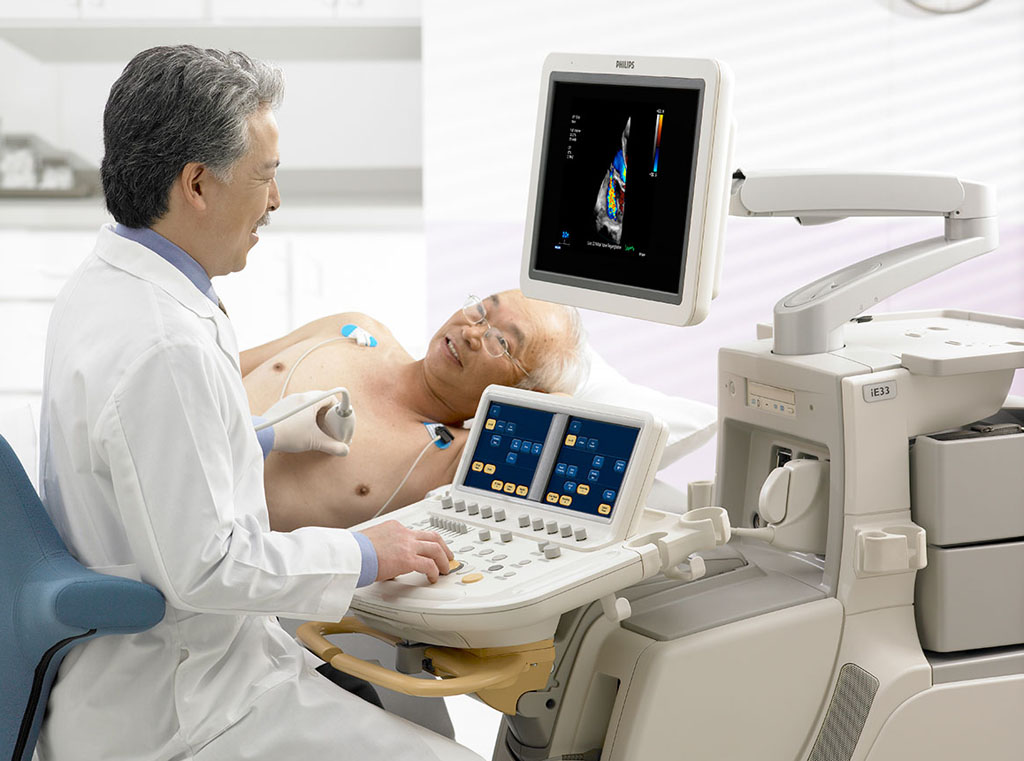Echography Studies Examine How Air Pollution Impairs Lung Function
By MedImaging International staff writers
Posted on 21 Dec 2016
Two transthoracic echocardiography studies including more than 16,000 individuals in Brussels, Belgium have shown the effect of air pollution on the hemodynamic functioning of the lungs.Posted on 21 Dec 2016
The studies were carried out between 2009 and 2013, and were presented at the EuroEcho-Imaging 2016 conference in Leizig, Germany. One study examined whether echocardiography parameters used to determine pulmonary circulation, and right ventricular function were affected by common levels of outdoor air pollution. In the second study, ten healthy male volunteers were exposed to either ambient air or to dilute diesel exhaust pollutants. Pulmonary vascular resistance was assessed using echocardiography at rest, as well as during a cardiac stress test.

Image: A transthoracic echocardiogram being performed in a patient (Photo courtesy of Specialist Cardiology).
The results showed a reduced pulmonary acceleration time as well as increased pulmonary acceleration slope from pollutants, on the same day, over five days, and ten days exposure. There was also a deterioration of right ventricle function.
Lead author of the study, Dr Jean-Francois Argacha, cardiologist at the University Hospital (UZ; Brussels, Belgium), said, "This is the first human study to report an influence of air pollution on pulmonary vascular function. This is a major public health issue for people living in polluted urban areas where exercise could damage the lungs and potentially lead to decompensated heart failure. Such studies are important because if air pollution causes narrowing of the blood vessels in the lungs (vasoconstriction), this combined with the systemic effects of pollution could cause decompensated heart failure. Air pollution was associated with increased pulmonary vascular tone, which makes it more difficult for blood to flow to the lungs. Longer exposure to air pollution exposure seems necessary to impair right ventricular systolic function. Patients with obstructive sleep apnea were at greater risk. This suggests that pollution is more harmful to the lung circulation during exercise. Our main advice is to limit physical activities during heavy air pollution."
Related Links:
University Hospital














